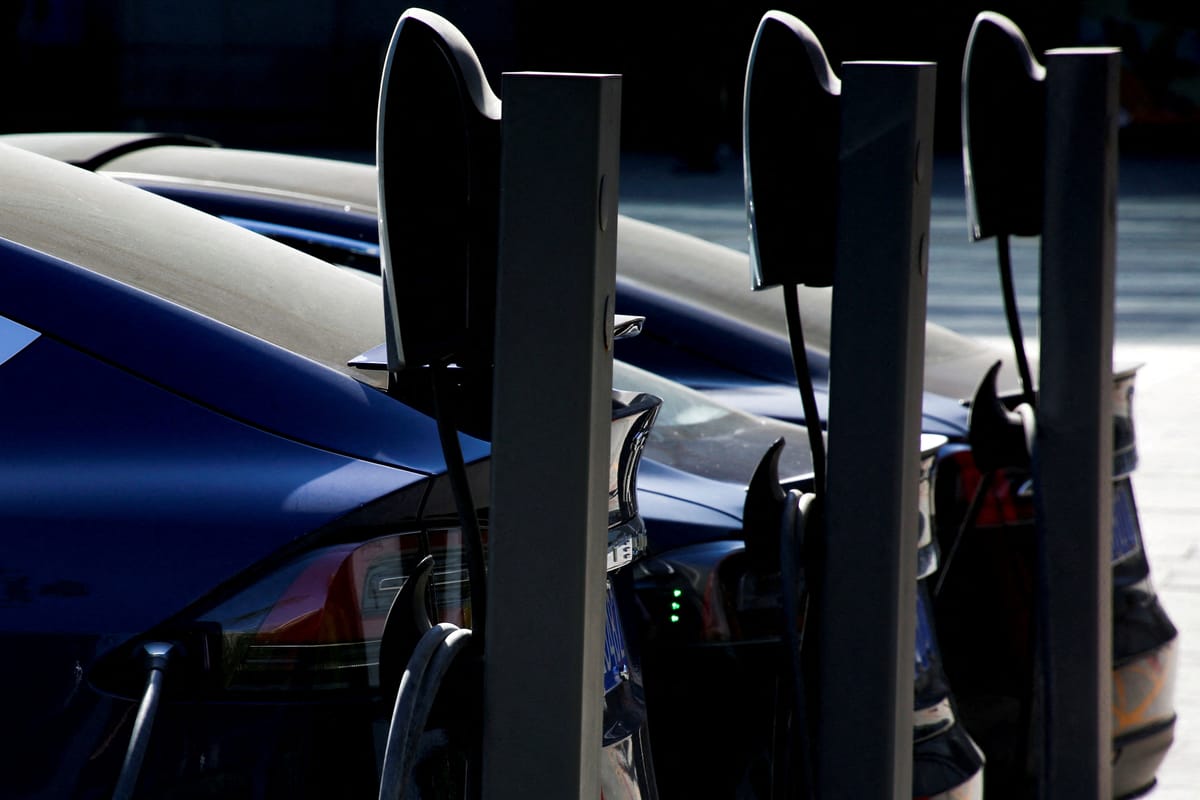Is the future for EV charging set to go wireless?
EVs are more energy efficient and reduce emissions, but there are some challenges to replacing gasoline cars entirely.

A few minutes every morning is all you need.
Stay up to date on the world's Headlines and Human Stories. It's fun, it's factual, it's fluff-free.
Many nations are focusing on increasing the number of electric vehicles (EVs) on the road in the fight against climate change. EVs are more energy efficient and reduce emissions, but there are some challenges to replacing gasoline cars entirely. One big one is range anxiety – nervousness among EV drivers about how long they can go without recharging their car. And to make that anxiety worse, the charging infrastructure to support all these new energy vehicles just isn't where it needs to be yet.
Charging networks are still being built out, so there are often long lines for chargers. Then there's their reliability to deal with. A 2022 study by J.D. Power said that more than one in five charging attempts failed, with survey participants attributing 72% of the failures to malfunctioning or out-of-service chargers.
But, EV makers are looking into the potential of wireless charging for vehicles. Some companies are already trialing the tech. With a wireless charging pad, an EV owner can simply drive their vehicle over one of these pads and wait for a light on the dashboard to tell the driver it's charging, removing the fuss of cords used for plug-in charging.
"Charging remains one of the big points of anxiety for EV buyers, and we make it something that just happens in the background," said Alex Gruzen, CEO of Massachusetts-based wireless charging company WiTricity, to Bloomberg.
The wireless charging EV market is predicted to reach $207.4 million by 2030, and while there are challenges ahead, this technology is showing promise. For example, some EV makers in China and South Korea are testing it on new passenger cars. But most of the wireless tests, for now, are on commercial vehicles, as they tend to have consistent routes and the luxury of having a dedicated parking spot where they can charge up overnight.
This has already happened in the US in Los Angeles, California. The Antelope Valley Transit Authority uses Wave Charging wireless technology to keep its electric bus fleet charged. The agency has 15 Wave wireless charging stations – one at its offices and 14 more along its bus routes – according to AVTA Marketing Director James Royal. Wave's VP of Sales and Marketing, Benjamin Auslander, says, "It allows for that bus to maintain its operations throughout the day without having to go back to a depot."
Elon Musk's company, Tesla, has also shown interest in this technology, with design chief Franz von Holzhausen confirming in December that the company is pursuing its own version of wireless charging. With Tesla showing optimism over this tech's potential, it's sparked the interest of other EV makers to seriously consider investing in this technology, which is still pretty expensive.
Although developing and rolling out fully functioning wireless charging pads for EVs is currently still a slow burn, it just could be the norm for drivers in the future.




Comments ()